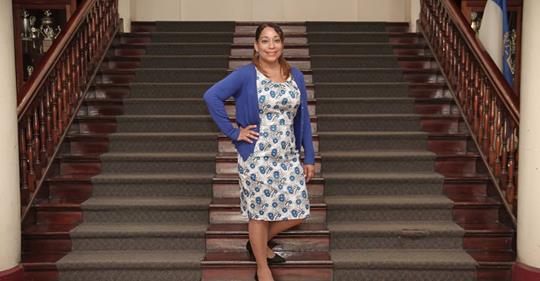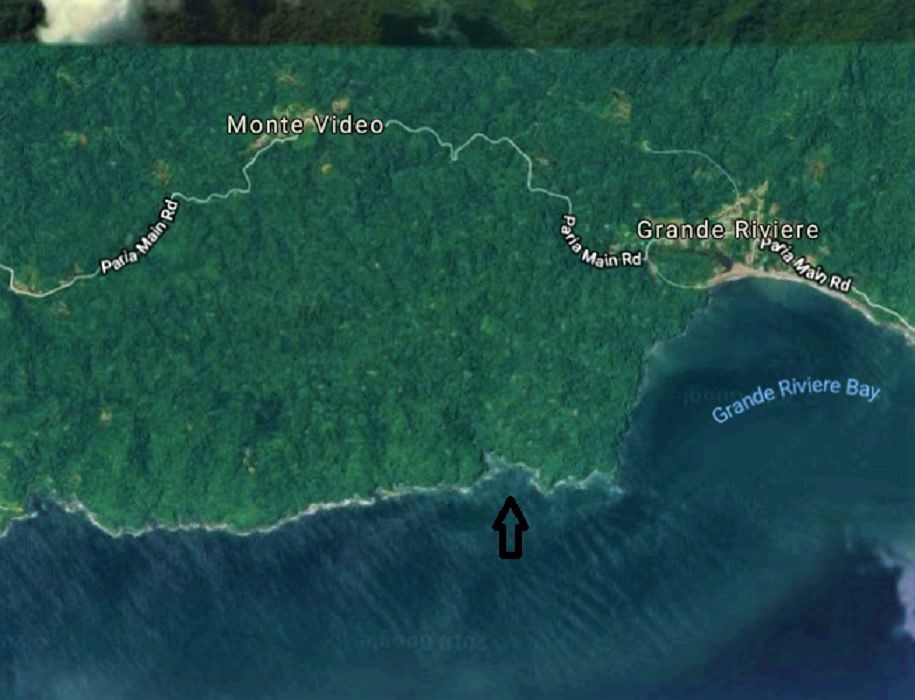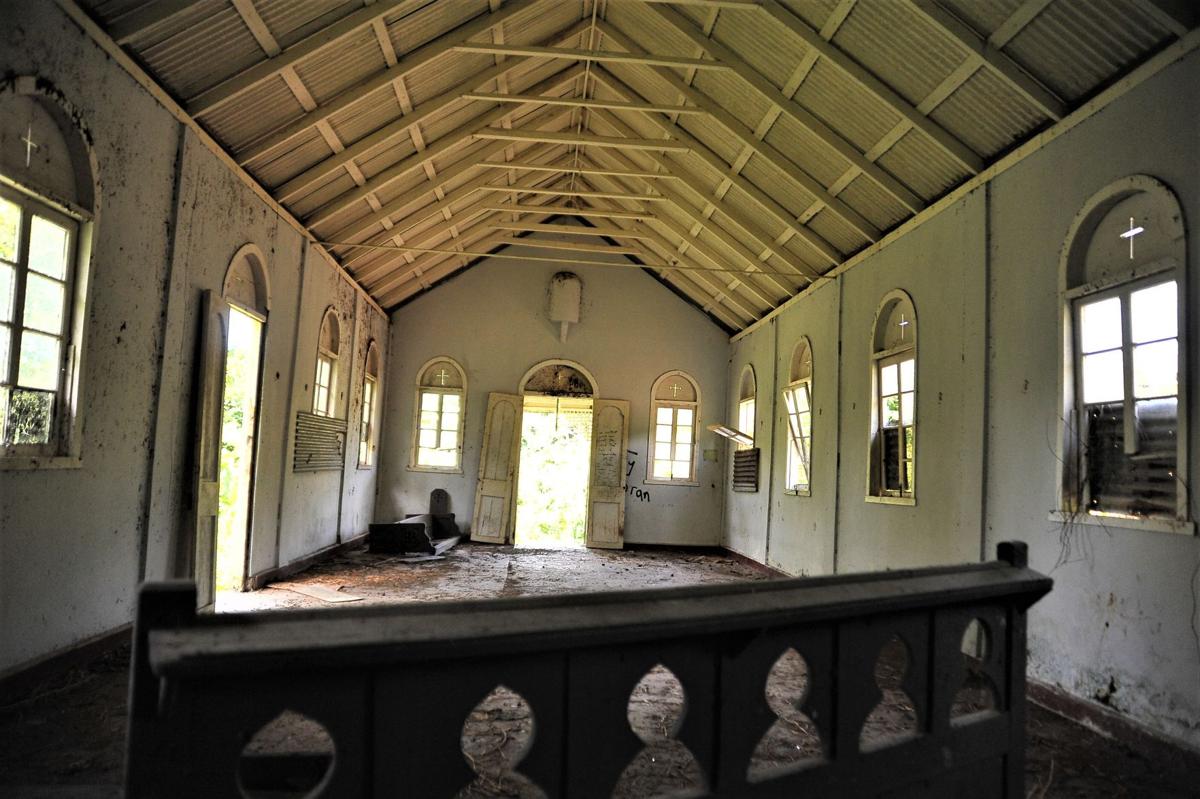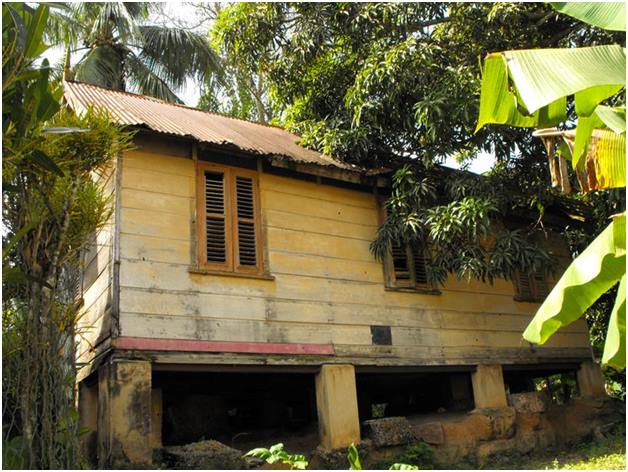|
Michele Mohammed has broken a tradition that is 155 years old. The recently appointed vice principal at St Mary’s College (CIC), Port of Spain, is the first woman to ever hold that position in the history of the school. “Sometimes I still think I’m dreaming. But you know God is good and he knows why he does what he does,” she told WMN. “I know I’m breaking ground here and paving the way for other women to feel confident to come forward and apply for other positions like these.”
Mohammed acted in the position for two years before she was appointed in June. “I understand that it is a role of service and I want to be able to serve in the best way that I can. I consider it a real privilege to be in this position and humbled by it,” she said of her appointment. The former head of department of Modern Languages now has an even bigger role to play in the lives of the 1,100 students and 81 teachers in her charge. “Among my core duties are to ensure that classes are supervised at all times and the safety of the school,” she outlined. But she also still takes a hands-on approach. “I still teach because I believe it is important to be on the ground with the teachers, to understand what they are going through. I have a religion class and sometimes stand in for a Spanish or French teacher when they are not here, seeing that that is my area of expertise.” But even though the job, like any other, comes with challenges, Mohammed knows what she is about because she has been an educator in the secondary school system for about 25 years. Her teaching career began at Corpus Christi Girls’ College in Diego Martin, then took her to Malick Secondary School where she taught for seven years. “The transition was difficult at first because the boys presented a greater challenge. They were less focused than the girls and wanted to do more outdoor things and less in the classrooms. Sometimes they would get into fights and I tried to deal with it on my own, so I wouldn’t have to be running to admin all the time.” She said she learnt how to talk to and guide them. “I adapted because I grew up with brothers. I realised I had some sort of skill in me to interact with boys and to them. Those challenges helped me grow as a person. “I remember one time I tried to physically part a fight but was advised not to ever do that again,” she chuckled. “But what I find and really love about boys is that they are quick to forgive. They do not hold grudges.” The mother of two teenagers said although she enjoyed teaching at the other two schools, she absolutely loves working at CIC. “It is quite different. I enjoy being here because I am Catholic, and it is a Catholic school, so I am able to put my faith into practice more with the students.” One of her biggest challenges since assuming role of vice principal, she said, is the bombardment of issues to be addressed. “The number of things that come to you at once. From the children, the teachers, parents. I have learnt how to prioritise, to put things in perspective. That is the major challenge. Deciding what needs attention now and what can wait,” she said as she attended to the sixth person to knock on her door during her interview with WMN. “This is how it is all day. This is just part of what my job entails.” Strangely though, the VP position was never part of her career plan. “I did not see myself in this position. I was quite content as an HoD.” But with the retirement of the former VP she was advised by a member of the Holy Ghost Fathers Board to apply for the position. “He spoke to other teachers as well and advised them to apply. I was hesitant because I knew it would have been a great task. I felt that I would have been under more scrutiny by virtue of the fact that I am female. And I was not certain that my application would have been taken seriously, although I am qualified for the position. I thought that maybe they would not have wanted a female at this level. It’s a very traditional school.” Nevertheless, she interviewed with both the Board and the Ministry of Education and was successful. “Times are changing, and people are looking at females differently and realising that we can in fact do the job. I think we bring balance. The principal (Nigel Joseph) is allowed to see things through my eyes and me through his. I bring a kind of nurturing style of leadership. But I do know when I have to be stern. I can be that way as well.” She said the staff, student body and parents seem happy with her appointment. Still though, she feels that she is under the microscope. “I feel that I’m being closely watched, but at the same time I know I’m being supported. I get words of encouragement from the different stakeholders. Word of acknowledgement that I’m doing a good job.” Asked if she sometimes feels pressured to toe the line, she said, “I suppose that happens everywhere. I must say that my principal gives me a lot of autonomy. He allows me to make decisions and sound them off with him. Most of the times he supports it. But this school is bigger than the principal and me and the staff. We are answerable to the Ministry of Education and the Holy Ghost Fathers Board. Most major decisions have to be approved by the Board.” Mohammed and Joseph are currently working on several projects she believes will enhance the development the young men in their charge. “One of the main areas would be making our student more socially conscious of what is happening in the world around them and in their country. Making them empathetic and inculcating in them the desire to serve and help those that are less fortunate. It takes a lot of talking and good examples. I think we have to model what we want from young people.” She firmly believes that curbing the prevalence of sexual violence against women must begin in the home and be extended to the schools. “Raising better children most definitely starts in the home and extends to the schools. We have to work in tandem with the home to inculcate values of respect to women and vice versa. We try as an institution. We hope the home is doing its part.” As for the next step in her career? “I am not certain. I have no regrets taking up this position and I feel happy in it.” As for applying for the position of principal when Joseph retires, Mohammed insists it is not a consideration right now. “I have acted as principal on more than one occasion but it’s not something I’m considering at the moment. I will need a greater revelation from God where that is concerned.” Source: Newsday, October 2018
0 Comments
A cascade on the way to the abandoned village of Manantial THERE was once a village in 19th century Trinidad called Manantial. It sat in a valley opening to the north coast. The homes were week-long projects of wood and carat leaves. No one was rich. No one was poor. The hunters most always returned with meat, and the fishing was easy. Plantain and provisions grew like weeds. The weed grew too, plentiful and potent. The mountain ravines were the washtubs and bathing pools of the people. And the spring that gave the place its Spanish name, provided clean water. So people ate well. If they survived malaria, yellow fever and dysentery, some lived long. It was a village born to support the cocoa crop. The residents were Venezuelan migrants, descendants of the African enslaved and what blood remained of the decimated First Peoples. They worked estates that thrived in perfect conditions, and lived and planted subsistence gardens on rented lands. To get to the closest ‘town’ meant a three kilometre walk or donkey ride under a rainforest canopy to the main road passing through the inland mountain village of Monte Video. Then there was an even longer journey to Toco, where the bridal trail ended, and where the round-the-island steam ship made a call. For some of the people here, entire lives were spent along a ten kilometre stretch of this coast. So you would think the people of Manantial could not get further away from it all. But the Christian missionaries found them. The Catholics and Anglicans were already competing for souls on the north coast when the Moravian Church elders arrived. According to the historical records, unsaved Moravians were discovered in Trinidad, so the Church sent someone over from Barbados to investigate. The Church found hundreds on Barbadian-born Moravians living godlessly in Port of Spain and fornicating in unwed squalor in Ste Madeleine, where the sugar factory employed many. And in Manantial, it was reported that: “heathen Chinese conducted a rum-shop (while) in some of the villages there were many Mahometans (Muslims), and many of the natives were still addicted to old African vices and superstitions”. The arrow points to the location of the abandoned village So the missionaries came, and stations were founded in Rosehill, Port of Spain, Chaguanas, Belmont, Ste Madeleine and Manzanilla. And in 1896, enough people donated time, money and material to build and consecrated a Sunday school and Chapel in a prominent spot in Manantial, a village whose name was corrupted by the locals to be called “Manantao”. In attendance that day were thirty adults and twenty-five children. A house would be built for the teacher and catechist and the school was recognised by the Colonial Government, with the salaries of the teachers paid for by the Board of Education. As a result, Manantial’s dead no longer had to be carted off to the Catholic graveyards at Mission or Matelot. They could be churched and buried in the place of their toil. But despite the State funding, the Moravian Church couldn’t get enough people or their tithes to expand. Some moved away to work on other plantations. Their children had to labour in the fields and did not often attend. Estate owners raised the rental prices and those who couldn’t pay were evicted. The abandoned church in Monte Video An epidemic of dysentery killed some and sickened the young. And worshippers in the nearby village of L’anse Noire built their own Moravian Church to avoid having to foot it to Manantial.
By 1915, the Manantial church closed, beginning a long decline. We know much of this history because of the memory of Isadore Tenia. Source: Richard Charran, the Daily Express, Oct 2018 Calypsonian Winston "The Mighty Shadow" Bailey has died at the age of 77. Shadow suffered a stroke on Sunday and died this morning. Shadow is known for a wide repertoire of songs that includes 'Bassman' , 'Dingolay' , 'Tension', 'Stranger', 'Yuh Looking For Horn' and 'Poverty Is Hell' . Source CNC3 TV Oct 2018
Bernadette's father was born in Trinidad, and her mother is French Canadian.
Clement is the first woman to be elected mayor of Cornwall as well as being the first visible minority to hold the office, and she said she is “very proud of that.” It’s a significant milestone for the community and it’s one that she hopes will inspire children in Cornwall. “(I want) children – boys and girls — everywhere to see that running for office is just something that women do,” she said. “I am also proud to be the Francophone black mayor of Cornwall. But I want to remind people that Cornwall elected its first Jewish mayor (Aaron Horovitz) decades ago, so this is nothing that necessarily unusual for Cornwall to do. “Now we’re just going to continue to build on the history of diversity that we’ve had here for the past 235 years.” Bernadette has been a city councillor for the past 12 years, and won the position with nearly 54% of the vote, handily defeating the incumbent Mayor Leslie O'Shaughnessy. We at the TTAO wish you the very best in your new position of Mayor. Congratulations. Source: Portions taken from the Standard Freeholder, Oct 2018 TT’s Laura Welch on her new job at a kindergarten teacher at Elon Elementary School in North Carolina. TRINIDAD teachers Theresa Vieruel and Laura Welch are making the United States their new classroom. Both are part of a cultural exchange programme, Participate, that recruits teachers to work in US Schools for three to five years. Vieruel and Welch are two of of 10,000-plus teachers from 84 countries who have participated in the programme which has been operating for past 31 years. For the first time, Participate has five teachers from TT. Vieruel, a 57-year-old teacher from Marabella, started her new job in the US as a kindergarten teacher at Elon Elementary School in North Carolina. She is gaining valuable experience and professional development by teaching in US classrooms, which she hopes to share with her Trinidad counterparts when she returns after her stint is finished. “It allows you to experience a different culture and teaching style. There is so much to learn which would enhance your own teaching on your return home,” said Vieruel in a media release. Theresa Vieruel teaches at Eastlawn Elementary School in North Carolina. One difference she notes, is the content in the school syllabus. “In Trinidad the syllabus is much more compact, and a lot of content has to be fit into one day, whereas in the US the content is lighter so there is more time to spend ensuring that the concepts are grasped by the children.” “The most enriching experience for me has been sitting with students and trying to satisfy their curiosity and interest about my home country which allowed me to share who we are as a people,” Vieruel said.
Welch, who is 25 years old, is originally from West Trinidad. She teaches at Eastlawn Elementary School, also in North Carolina. As a full-time kindergarten teacher, she teaches all core subjects which include reading, math, literacy and science. So far, she has had great experiences teaching in the US. “The school that I work at has amazing outdoors spaces where my class and I often go to explore, learn and engage with nature in ways that they may not get a chance to in their daily lives. In fact, two teachers worked together to obtain a creativity grant for our school. The grant was used to create a garden area with the objective of creating a space for students to be exposed to experiences that would assist them in making healthier food choices and develop both social and life skills by working together to nurture the plants,” she said. The garden was also a unique learning session for Welch’s class. “Within the first nine weeks of school my students creatively learnt their math skills by sorting and counting seeds as well as used inch cubes to measure the planting areas for their seeds,” she said. In addition to making sure her charges are well-rounded students, Welch hopes to build a closer relationship with them, as she did with students in TT. “Trinidad and Tobago is a small country and as such many teachers often have a close relationship with their students’ families. Therefore, allowing us to be more aware of our students’ home environments and the challenges they face in their personal lives,” she said. Professionally, Laura says she is learning an entirely new skill set as it relates to the curriculum which she hopes to implement when she returns to TT. Participate’s Teacher Recruitment Manager Ronald Ramírez said teaching abroad offers great insight. “It is a valuable learning experience for the Trinidad teachers, their students and colleagues. Teachers have the opportunity to integrate into new communities and schools, where they will develop both professionally and personally,” he said. There are opportunities to teach primary school, maths, science, and world languages (including English as a Second Language). All positions are full-time and salaried, with competitive health benefits and professional development opportunities. As an additional benefit, in case the teacher recruited has a family, it is possible for the members to travel to United States with all migratory arrangements accomplished and supported by the program to obtain the visa. Participants must agree, however, to complete a minimum of two years on the programme to ensure continuity and stability for learners at participating schools in the United States. Participate partners with schools in Virginia, North Carolina, and South Carolina. All three states are in the Southeast USA. Placements are in rural, suburban, or urban settings. Schools are carefully evaluated for suitability and need. Primary schools teachers who are interested in teaching in the US and want more info: go.participate.com/trinidadandtobago  Trinidadian-born writer Ingrid Persaud has won the £15,000 BBC national short story award with “The Sweet Sop”, a tale about a father and his estranged son and how they are brought together through chocolate. Persaud, who is now based in Barbados and London, topped the all-female shortlist for the coveted prize. This is the first work of short fiction for the writer and artist, and has been dubbed by the judges as “tender and ebullient”. The Sweet Sop, which already won Persaud the 2017 Commonwealth short story prize, is told in Caribbean dialect. TLS editor and chair of the judging panel, Stig Abell, described the relationship between the young man, Victor, and his father, Reggie, as “an utterly convincing and memorable one, a clever inversion of normal parental process”. He said Persaud succeeded in keeping “a consistency of voice without smoothing over the reality of genuine conflict”. Abell’s fellow judge KJ Orr, who won the award two years ago, said Persaud understood and demonstrated “the compressed, conflicted potential of the short story.” He further described the work as “at once tender and ebullient, heart-breaking and full of humour.” Persaud only began writing in her mid-40s “through the scenic route of law and fine art” after careers as an academic, a visual artist and a project manager. She published her first novel, “If I Never Went Home”, in 2013. Persaud was presented with her £15,000 prize at a ceremony at Cambridge University on Tuesday. The Trini-born writer told Wasafiri magazine earlier this year that her winning short story found its beginning in two sources. “I was trying to work out for myself some issues around the dying process and what constitutes a good death in the family. At the same time, I was looking at the choices we make in the last few months and years of our lives. I couldn’t find a way of processing that because it was quite depressing and clinical,” she said. “Then, when I was having lunch with a few friends, I looked at the menu and saw a dessert that I have looked at a million times before, at least the name of it, which was Death by Chocolate. I suddenly started thinking ‘death by chocolate’, is there any way I can use this? I did a bit of research and found a whole genre of stories that are all about death and chocolate and that was how I came to write this story.” In an interview with Jennifer Emelife of TSS Publishing, Persaud explained her decision to tell the story using Caribbean dialect. “Western writing has always embraced regional dialects and slang and presented it as something that can be universally accessed once the writing is solid. This is simply another version of dialect following in this rich tradition. The story is set in Trinidad and the voice demanded quite exact language to be authentic,” she said. Persaud also hailed the work of other Caribbean writers making their mark on the world stage. “Caribbean literature has always been vibrant and our writers are now claiming previously untouched genres. Several collections of noir writing have appeared. Sci-fi, not often associated with West Indian writing, is making waves with work by authors like Karen Lord. I’m enjoying the fresh voices of authors like Kerry Young and poet Loretta Collins Klobah. And of course the region is getting international attention with Kei Miller and Vahni Capildeo both recipients of the Forward Poetry Prize and Marlon James is our first Booker Prize winner.” Source: The Loop, Oct 2018 Here's a perfect example of what Trinidad and Tobago needs to invest in.
Meet the young, assiduous and very hardworking Jesse Harripersad of Williamsville, a 22 year old admirable farmer. Jesse is a brilliant and respectable young man that studies Agriculture at the University of Trinidad and Tobago. I've interacted with Jesse several times only to be inspired by his love for agricultural growth. Additionally Jesse is a well rounded individual who very strategically balances his life and is very disciplined. He rigidly follows the 4:00 am mornings working his land and caring for his produce, followed by his active university class participation and believe it or not he is also an extremely talented young cricketer with great swing bowling ability and a test player's attitude. This young man is definitely one for the future and Promote TT strongly supports his ventures. Jesse takes pride in feeding our nation. As the final terminus of the Trinidad Government Railway , the 1914 Siparia station was also served as a last outpost. In addition to a house for the porter and station master, it also boasted this building which served as an overnight hostel for engineers and other benighted colonial civil servants . It is now in a tangle of bushes behind the train station {Credit Angelo Bissessarsingh}. This building is the only one that has not been renovated , but it is showing signs of the ravages of time. Presently it is unoccupied.
|
T&T news blogThe intent of this blog is to bring some news from home and other fun items. If you enjoy what you read, please leave us a comment.. Archives
June 2025
Categories
All
|

















 RSS Feed
RSS Feed